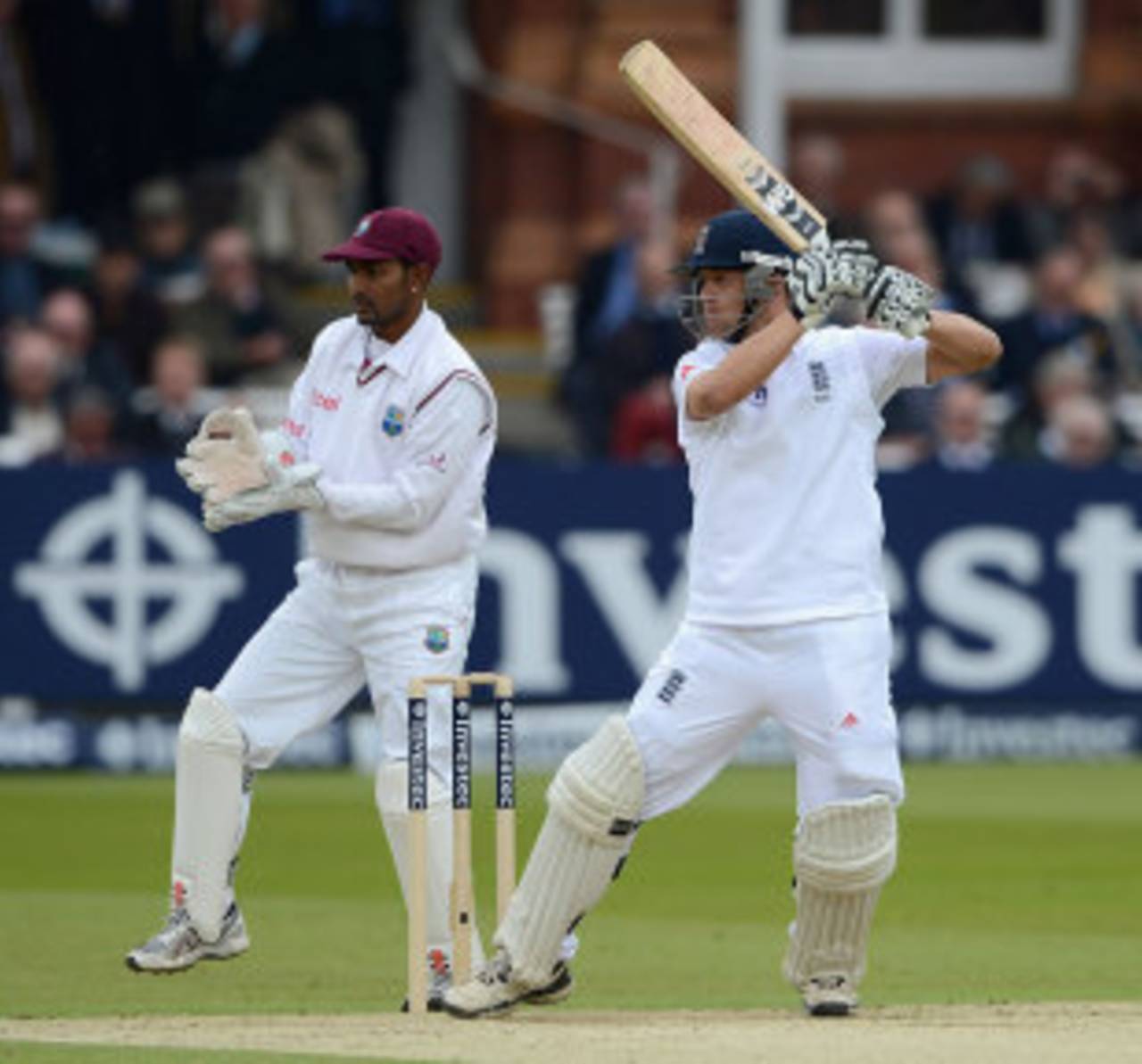For years we thought India's batting would be fine, that one of the many young fellows routinely knocking runs in domestic cricket would become the next Dravid or Laxman. It's the bowling, we thought, that will be the issue. Now it turns out we have a problem with our young batsmen too, none of whom really made an impact against a West Indies side that consisted of those who didn't make it to the team that is disappointing many in England!
As a great fan of Test cricket it worries me enormously, and I know that fingers, like cowardly guns, will be pointed towards easy targets. But is it India alone, possessor of the world's most popular whipping boy, that is the only country in peril? Or is the cricket world at large in some kind of batting recession?
I called up my friend Mohandas Menon and sure as ever the numbers came tumbling out. Test cricket had an outstanding crop from 2004 to 2006. England provided Andrew Strauss, Alastair Cook, Kevin Pietersen and Ian Bell; India had Gautam Gambhir; from Australia emerged Michael Clarke and Michael Hussey; and the South Africans threw up AB de Villiers and Hashim Amla. Since then, only one batsman in Test cricket has laid claim to being world class, and that is Jonathan Trott, who appeared in 2009. One from nine Test-playing countries in six years. These are scary numbers.
You could argue that it takes a few years for a player to feel at home in international cricket, but you could safely assume that a player can play in 30 Tests in six years and that is good enough, as Trott has shown, or indeed as most of those in that list above did.
Since then, there have been many who have promised but none who kept their word. Australia tried Phil Hughes, Usman Khawaja, Marcus North and Shaun Marsh; England, the most blessed (or maybe the most organised?) only needed Eoin Morgan and now Jonny Bairstow. New Zealand perhaps promised the most, with Ross Taylor, Martin Guptill, Jesse Ryder and Kane Williamson, but it was also a phase when Dan Vettori was their best batsman (averaging, at one point, ten more than the next best). You could go on. India, the possessor of the most stable line-up tried Suresh Raina, Murali Vijay, Abhinav Mukund, and are hopeful that Virat Kohli and Cheteshwar Pujara will be the real thing.
The bowlers, interestingly, seem to do better. But you'd expect that. Like women in this supposedly liberated world, they have to try harder, they have to be smarter, and they learn to survive. Morne Morkel and Vernon Philander are doing well with Dale Steyn from the 2004 batch. Stuart Broad, Graeme Swann (ignore that first tour) and Tim Bresnan are established, and surely Steven Finn will be. Elsewhere Saeed Ajmal and Kemar Roach have had their moments, and already we have seen what James Pattinson and Peter Siddle are capable of.
So what happens in a few years, when the batch of 2004-06 starts moving on? Which are the young players on the horizon who will light up Test cricket? Kohli? JP Duminy? Angelo Mathews? Darren Bravo? Umar Akmal, maybe?
England look good at the moment (but in Asia, ah well!), and Australia might revive. South Africa look strong but West Indies are still in disarray. Pakistan are good on some surfaces, as are Sri Lanka. New Zealand can't find a batsman to average over 40
You could look at this trend and do the predictable: scream at the brash nouveau-riche kid in town and paint him in every dark shade you can think of. Or you could stop looking at cricket from a hopelessly romantic angle and bring a touch of realism, maybe look at things a little more pragmatically. Or you could do worse: you could weaken one-day cricket through constant tweaking in order to prop up Test cricket. Hurting one doesn't make the other strong.
Everywhere I go, I hear people say Test cricket will survive, and I pray they are right. Indeed, I said it myself till recently. I also heard, in recent years, when India's economy survived the global crisis, that everything would be fine. Through paralysis, India's economy is stumbling. I fear the same with Test cricket unless we do something. I find that people's concern for Test cricket is a bit like India-Pakistan friendship - it stops at romance, at pretty words.
World cricket cannot live in denial. You cannot close your eyes and say, "My son is the best," when he gets 58% in his exams. England look good at the moment (but in Asia, ah well!), and Australia might revive. South Africa look strong but West Indies are still in disarray. Pakistan are good on some surfaces, as are Sri Lanka. New Zealand can't find a batsman to average over 40. And the last eight Tests that India played overseas… And we aren't even talking about Bangladesh and Zimbabwe.
Test cricket needs to take a hard look at itself and, for a start, accept that it is a patient that needs attention. The solution isn't to start firing in all directions - at one-day internationals and at T20. That would be easy, would result in dramatic prose and achieve nothing.
Maybe the solution lies in playing less cricket, maybe in asking some countries if they really are committed to Test cricket. There are many sharp minds who can come up with possible solutions, but first they must admit that Test cricket, as it stands now, is on weak ground. If you do nothing, if you don't see the signs, even General Motors can go bankrupt.
Harsha Bhogle is a commentator, television presenter and writer. His Twitter feed is here
